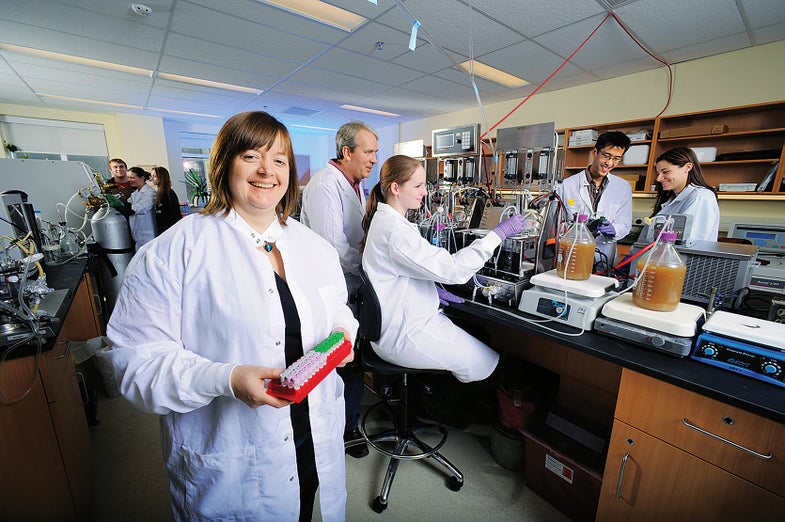Meet The Researcher Whose Fake-Poop Project Could Save Your Life
Emma Allen-Vercoe's fecal-transplant treatment could battle lethal gastrointestinal infections.

Done with your lunch? Good, here we go: You may know that implanting feces from healthy people into sick people can treat the deadly gastrointestinal infection caused by the bacterium Clostridium difficile. But Emma Allen-Vercoe and her colleagues at the University of Guelph in Ontario believe that they can improve on this wholesale transplantation strategy. They’re working to tailor mixtures of gut microbes for individual patients. Unfortunately, these bacteria are finicky and don’t grow well in petri dishes, so her team makes artificial poop.
PopSci: What’s the special recipe for fake feces?
Emma Allen-Vercoe: It contains things like the indigestible cellulose that’s left after a meal has passed through your digestive tract and down to your distal gut, the end of the line for digestion. It’s pretty nasty-looking. It’s a brown sludge, it’s got lumps of starch, and it’s kind of gloopy. It doesn’t look or smell very appetizing.
PS: How do you turn that sludge into a fecal transplant?
EAV: Robogut. Robogut is made of six big beakers full of that sludge that are warmed to body temperature. And we add the bacteria from a small amount of human feces. Since oxygen is poison to anaerobic gut bacteria, each vessel is sealed to make it airtight, while sensors monitor temperature and acidity.
PS: What’s the worst part about working with synthetic poop?
EAV: Because of regulations, we can’t just flush the waste down the toilet. So we have to sterilize it by cooking it at a very high temperature and then throw it out. That means we have to do it at night when no one is there, because the whole building starts to smell like poop.
PS: What’s the most surprising thing you’ve learned from your research?
EAV: That microbes are not the enemy. Within the next 20 years, we’ll be moving away from this idea that pathogens cause most disease. We’ll be looking at diseases that are brought on by a breakdown in the microbial ecosystem—of an imbalance in the good microbes that already live in your body.
PS: What keeps you up at night?
EAV: Because governments are making it very difficult to get the medical supervision for a fecal transplant, there’s this sort of underground culture of people doing them on each other, just getting the information off the Internet and then transplanting without any supervision. With no proper surveillance, they could be doing far more harm than good. I am terrified for them.
This article originally appeared in the August 2013 issue of Popular Science_. See more stories from the magazine here._